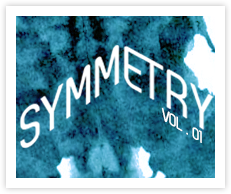

Music Can Speak to Us
Matthew Stewart // October 6, 2011

Before human beings could speak, they could create music. And, what is music, exactly? It is not simply a bunch of catchy lyrics accompanied by instruments, nor is it simply an art form; music is a method of communicating with one another. Through music we share thoughts and feelings, social perspectives and political views. Music speaks to us, it stirs human passion and can make us think and feel strongly about its message. The only thing that’s changed throughout the history of music is how it’s been distributed to audiences and who it’s speaking to.
Let’s skip the pre-language, guttural yodelling of our prehistoric predecessors. Let’s start in the 20s. During the dust bowl era in the United States there were few people writing songs speaking directly to the “everyman”. Tin Pan Alley was prominent, and Irving Berlin sang songs about Christmas. Enter Woody Guthrie, a fellow who saw what was happening in America and wrote songs dedicated to the workers. Guthrie’s lyrics reached out to the farmers who lost everything, the husbands who couldn’t feed their family, and parents who watched their children go hungry. And they spoke to the rich who didn’t realize the misfortune surrounding them. He sang of the downtrodden, using his music to spread the message that things were not right.
This trend continued into the next generation. Bob Dylan, among others, was a huge influence on the folk scene, and the spirit of Guthrie’s music infused Dylan’s music. Dylan spoke out against injustice; he stood next to the people he sang about and sang for. As time went on and the lowly folk artists became increasingly popular, the stage was set for some bigger names to put forward their thoughts and beliefs.
We all remember Live Aid, right? Ok, maybe not, but ask your parents, and they’ll tell you all about it. Live Aid put the current famine in Ethiopia in the spotlight. Dozens of bands from around the world took the stage in front of hundreds of thousands of people. At that moment (well, roughly eight hours), the entire world shifted focus and opened their hearts and minds to a specific social and political issue, and they tried to help. One of the most notable acts at the Live Aid concert was Bono and U2.
Bono has spent his career making us more aware of incredibly salient world issues. From famines to voting, Bono has kept things on our minds that we may never have thought about otherwise. There’s a catch to this tale of valiant activism, however: Bono is famous. We look up to famous people. We can become involved in a movement that is meant to change the world, but we can do it for the wrong reasons. We could be doing it simply because Bono tells us to. Does that make the point less valid? Not really. The heart might be in the wrong place, but ultimately the result is what matters–if it’s for a good cause. It’s not how the point is presented that matters, either.
The important thing here is that the channel (in this case, music) used to communicate the message reaches the largest audience possible. In this way, the message maximizes its impact. Maybe the stars got bigger, but their message can now spread to those who need to hear it. Our pre-language predecessors would be proud.
